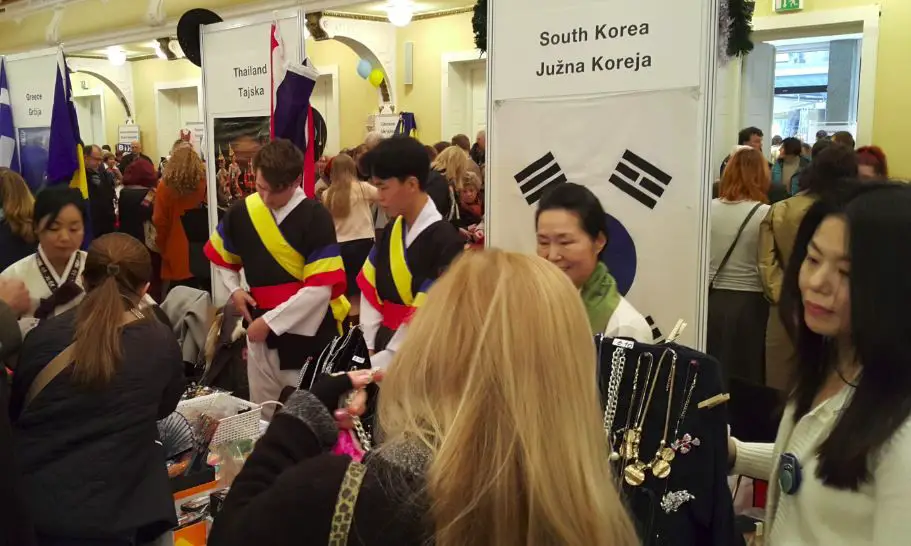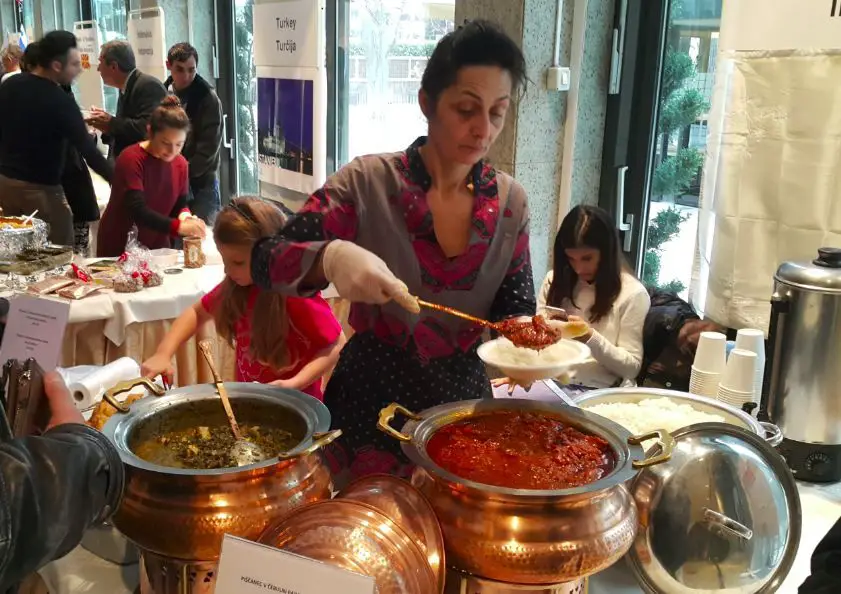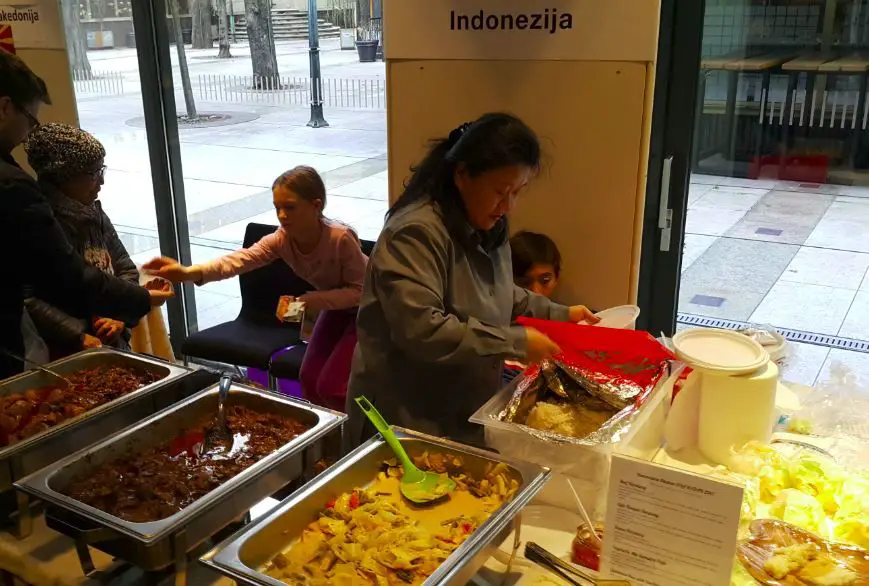Ljubljana related
STA, 2 September 2020 - Polish Justice Minister Zbigniew Ziobro has invited Slovenia in a letter to join Poland in withdrawing from the Istanbul Convention, a European treaty aimed at preventing violence against women, the newspaper Delo reported on Wednesday.
Poland, which finds the treaty "harmful" because it requires schools to teach children about gender, proposed to Slovenia that a new convention be drawn up.
Several versions of the new convention were reportedly mentioned, including one that would promote protection of children in the face of moral corruption and the definition of a child based on the 1989 UN convention but with an addition that the child's life starts at conception.
It would also include a definition of the family as exclusively one consisting of a father, mother and a child or children, and the possibility of marriage only between a man and woman.
Ziobro has labelled the Istanbul Convention a feminist invention that wants to justify homosexual ideology. He announced Poland's intention to withdraw from the convention at the end of July, thus causing a stir both in Poland and abroad.
Thousands of Polish people gathered at protests around the country, and the EU and the Council of Europe expressed regret at the decision.
The Istanbul Convention is the first internationally binding instrument for prevention of violence against women, from rape to domestic violence and genital mutilation. It has been drawn up by the Council of Europe, the oldest human rights organisation in Europe.
Slovenia signed the convention in 2011 and ratified it in 2015, the same year as Poland.
In Slovenia, 80 MPs of the 90-member parliament voted in favour of the ratification. The EU signed the convention in June 2017.
After signing the convention, Slovenia amended the act on preventing domestic violence and explicitly banned corporal punishment of children.
The government has not stated its opinion on the convention yet, but MP of the ruling Democrats (SDS) Branko Grims, who according to Delo voted in favour of the ratification in 2014, commented on Poland's announcement on Twitter in July by saying that Slovenia too should withdraw from the convention.
Meanwhile, the Justice Ministry told the STA later in the day that it had received Poland's letter. However, the ministry sees no reason to withdraw from the convention or to amend it, a stance which has been made clear to Poland as well.
The ministry received the letter on 25 August and its reply reads that the convention is an important international legal instrument regarding preventing and tackling domestic violence and violence against women.
"The ministry believes that the convention sets good foundations for facing societal challenges and paves the way for values, such as equality and decency for all our citizens," said the ministry, adding that international law, EU law and Slovenia's law ensure appropriate legal frameworks in this area.
Hence, the ministry does not see any reason to come up with a different treaty. Moreover, changes proposed by Poland would entail amendments to Slovenia's law and constitution.
The letter has been sent to the Ministry of Labour, Family, Social Affairs and Equal opportunities, said the Justice Ministry, since it concerns relevant issues for the former ministry as well.
The Modern Centre Party (SMC), of which Justice Minister Lilijana Kozlovič is a member, said earlier that withdrawing from the Istanbul Convention would be unacceptable.
"Slovenia as a state should not be even considering that," said Janja Sluga of the SMC, highlighting that the convention primarily aimed to ensure a Europe without violence against women and children and to protect decency and equality of all citizens.
Poland's initiative jeopardises Slovenia's constitutional and legal system, she said, adding that it would push us back to the dark times when women and children's abuse was a norm.
Asked whether the government could withdraw from the convention on its own even though it was parliament who had ratified it, she said that the question should be addressed to parliament.
Siol.net reports that the public debate on changes to Slovenia’s rape law has now concluded, with support for adopting a definition based on consent in place of the current system. The proposed amendment will now go back to the Ministry of Justice where the final version will be prepared before being presented to the National Assembly for a vote.
The current law in Slovenia defines rape based on coercion, and thus if no force is used, or the victim is unwilling or unable to say “no”, then no crime is said to have been committed. This attracted considerable attention in early 2019, when a man who raped a woman was charged with criminal coercion rather than a sex crime, because the woman, passed out drunk in the man's apartment, did not - and could not - resist. The man, from Koper, received a 10-month sentence.
The proposed changes would make every non-consensual sexual act a criminal offence, including those during which the victim did not physically resist the perpetrator or say no out of fear, shock or any other circumstances preventing such action.
STA, 22 July 2020 - After a year and a half of calls for redefining rape in the penal code, the Justice Ministry said on Wednesday that legislative changes had been drafted. Their aim is to embed the consent standard in criminal law.
The changes would make every non-consensual sexual act a punishable offence, including those during which the victim did not physically resist the perpetrator or say no out of fear or shock or any other circumstances preventing such action
Related: Shock Case Shows How Coercion Defines Rape in Slovenia, Not Lack of Consent
The amendments thus enable a transition from the coercion-based definition of rape to the consent-based standard, including the affirmative consent and veto models. Coercion or force would become aggravating circumstances.
The ministry's statement came in response to claims by a feminist NGO, March 8 Institute, that in a year and a half no progress had been made to amend the definition of rape in the penal code.
The ministry said this was not the case as it had held meetings with a number of NGOs, the most recent one in June, with all the participants agreeing that the consent-based standard had to be implemented.
Related: Statute of Limitations for Sex Offences Extended to Between 30, 90 Years
But in response, 8 March Institute pointed out that the participating NGOs had insisted to scrap the veto model and enforce only the affirmative consent standard, known as "only yes means yes", which the ministry did not green-light.
In January 2019, March 8 Institute launched a petition, signed by more than 6,000 people, demanding a redefinition of rape. The effort came as a response to a court case in which a man was acquitted of rape because the victim was asleep and unable to resist.
The public consultation period for the amendments runs until 25 August.
STA, 6 March 2020 - There seems to be a wide gap in how young and old generations of women in Slovenia perceive gender equality and their own position in society, a series of short interviews conducted by the STA before the International Women's Day has shown. Headlined Generation Equality, Women's Day will be observed around the globe on Sunday.
Older women believe women today have it easier, while young women feel like equality today is only skin-deep and that in reality they still face many obstacles and prejudice in their everyday lives.
"On the one hand, [we are told] to get as educated as possible and to build successful careers, but at the same time we are not supposed to neglect duties expected of us as partners, mothers and homemakers," Zala, a medical student, said.
"The attitude of men toward women is often patronising," she said, adding that this makes women more self-critical and less confident in their abilities, and it also makes them feel like they are not being heard.
The patronising and degrading attitude is so deeply ingrained in society that even women have a hard time identifying it, said Zala, adding that women are used to hearing jokes and remarks about their appearance, work and behaviour.
Meanwhile, Vikica Temnikar, a retirement home resident in Črneče near Dravograd, told the STA that she had always felt that women and girls were respected.
The plant she worked at organised a special programme for women every 8 March, they received flowers and danced, said Temnikar.
However, she believes it has always been and always will remain important how each individual woman does for herself and that they always had to endure a lot.
Temnikar believes that women have more power now and there are more jobs available for them. "Of course they have to work. It's exhausting, but at least they have a bit more power and independence."
Another retirement home resident, Monika Gornjec also believes that women have it easier today because they have more courage. She said she never felt unequal compared to men, but she said she observed inequality of women in Switzerland where she worked for 14 years.
Marina, a student at the Ljubljana Faculty of Arts, was critical of older generations who often advise young women to be patient and ignore degrading and sexist remarks. She believes that this is the wrong thing to do and that it would only ignore the problem instead of addressing it.
Ana Pavlič of the Institute for Gender Equality Studies said that women today are under pressure to be perfect mothers, partners and accommodating workers. "Under such pressures it is harder to detect attempts to undermine our rights and the emergence of new discriminatory strategies that aim to strengthen the gender-based subordination."
Attitude toward women has changed throughout history, she noted. A century ago the women's right struggle focused on suffrage and better work conditions, while "50 years later, the women's rights movement has realised that formal and legal equality does not amount to actual gender equality, and that reproductive rights and abortion, childcare and contraception must also be addressed," said Pavlič.
"The equality we have achieved so far makes it essential that we are aware of all mechanisms and practices that continue to persuade us in our inferiority and subordination," said Pavlič.
In real life, this means that women have sexual liberty but are still being sexually harassed, Pavlič said. It means that they have equal access to education but their opinions are valued less than that of their colleagues, it means that domestic violence is prohibited but still 50% of women have experienced psychological and/or physical violence by the time they are 15 years old.
The weight of women's opinion in society is a particularly grating issue for many. High-profile events have already made gender parity official policy, but many events for professionals remain almost exclusively male. This has even led to the coining of the term manel - a debate at which panellists are exclusively male.
In response, the Institute for Gender Equality Studies, alongside the UK Embassy in Ljubljana, launched earlier this week a campaign to address another the underrepresentation of women in expert discussions.
Headlined Strokovnjakinje (women experts), the project has set out to draw up the first comprehensive list of female experts from all fields in Slovenia that event organisers will be able to draw on when they select participants for discussion.
Gender Equality Relatively High in Slovenia, But Significant Issues Remain
STA, 6 March 2020 - Slovenia ranks relatively high on the OECD gender equality scale, but the situation is far from rosy for many Slovenian women. Average monthly pay is nearly EUR 130 lower for women than men, while two thirds of pensioners below the poverty line are women.
Slovenia place eighth on the gender equality scale of the Organisation of Economic Cooperation and Development (OECD), which features 120 countries. The share of discrimination in Slovenia was 12.9%, with discrimination within the family the biggest problem.
The share of women with jobs is higher than elsewhere in the EU, and the pay gap is still one of the narrowest in the bloc. What is more, Slovenia has a high share of female managers, show Statistics Office figures released ahead of International Women's Day.
Women in Slovenia made an average of EUR 1,710 gross per month in 2018, some EUR 130 less than men. Lower pay also affects women's pensions, with data from the Statistics Office showing that women account for two thirds of impoverished pensioners.
Data from the Statistics Office show that an average Slovenian woman is almost 45 years old and is better educated than the average male, but still paid less.
On average, Slovenian women live to the age of 81.6 years, 7.5 years longer than men. The most frequent cause of death is cardiovascular disease. Girls born in 2018 have a life expectancy of 84 years, 5.7 years longer than boys born the same year.
Some 75% of women over the age of 14 in Slovenia are mothers, most have two children. Some 28% of women have a university degree, while the share among men is only 20%. Most women, 50%, have secondary education.
Their education has been improving through generations. Among women who were aged between 60 and 69 on 1 January 2019, most only had primary school or lower, while in the generation of women between 30 and 39 most had higher education.
Physical characteristics data show that an average Slovenian woman is 165 centimetres tall and weighs 68 kilos. 52% are at a normal weight, 30% are overweight and 13% are obese.
Most women exercise about two hours a week and eat fruits and vegetables nearly every day, while more than 80% do not smoke, statistics show.
Moreover, women in Slovenia are generally happy with their lives. In 2018, the Statistics Office self-reported happiness index for women reached 7.3 points out of a possible 10, the highest level ever recorded.
Learn more about women in Slovenia with the follow graphics produced by the Statics Office (SURS), which runs an excellent English website with lots of data to explore.
STA, 11 February - Women remain under-represented in scientific and technical professions, especially at senior levels. Unconscious bias, double standards and gender stereotypes are some of the reasons why headway towards gender equality in this field remains sluggish. Indeed, in some areas there has not been any progress at all.
Worldwide only about a third of research staff are women and only about 30% of women opt for programmes that fall under the umbrella of STEM (science, technology, engineering and mathematics), according to UNESCO data.
University of Nova Gorica astrophysicist Andreja Gomboc, who chairs a commission for equal opportunities in science, says low representation of women in STEM is bad not just for women but for these fields of scientific endeavour in general.
"Women significantly contribute to tackling the big issues humanity faces in the 21st century and it is necessary to create opportunities for their full participation in science. Addressing these issues requires leveraging the entire human potential," Gomboc told the STA ahead of the 11 January International Day of Girls and Women in Science.
For women, not choosing a career in STEM limits their career options since the high-tech society of today offers huge employment opportunities for STEM graduates. "If girls do not chose these fields, they don't have the opportunities."
Gomboc says gender discrimination is no longer as explicit as it used to be, but there is still a lot of bias, double standards and gender stereotypes that dissuade women from pursuing a career in science.
Slovenia's largest university, the University of Ljubljana, has been dominated by men since it was established a century ago. The latest figures show the ratio of men to women among faculty is roughly 60:40, with the share of women declining the farther up the career ladder one goes.
In 2018, there were 56% of men among assistant professors, 60% among associate professors and 69% among tenured professors, according to Aleksandra Kanjuo Mrčela, professor of sociology at the Faculty of Social Sciences.
Despite the persistent imbalance, she believes that the situation will gradually improve as the share of men has been declining. "It is expected that in the coming years the gender structure will be balanced across all job segments," she says.
Gomboc believes that in order to improve the conditions for female researchers, it is necessary to consistently comply with gender equality provisions at all levels. This does not mean men and women have to be the same, it means that "we are equal in practice, that we have equal opportunities and equally participate in all spheres of public and private life".
She says Slovenia has some good baseline solutions, for example 12-month parental leave, but new steps are being made very slowly. "We know what we have to put down in the sections on gender equality in applications for EU projects and strategy documents ... but then many ignore that."
Indeed, she says there has been a negative trends in certain areas, for example in top national awards for science. "Among last year's recipients of Zois and Puch prizes, there were only 12% of women and few women were nominated. This means that the environments in which women researchers work do not value their achievements the same way they value the achievements of their male colleagues."
Our other stories tagged “women in Slovenia” are here
STA, 6 February 2020 - Over 200 participants from more than twenty countries will get together in Ljubljana on Thursday for a three-day Women Economic Forum, an event dedicated to empowering women committed to change.
An associate of the All Ladies League, an international network of women, the Women Economic Forum aims to help women expand business opportunities and increase their influence in society.
The slogan of the event is Power of the Pack. Women trustfully supporting Women, highlighting how women have been traditionally taught to be distrustful of one another due to scarcity of top jobs, according to the organisers.
The organiser of the WEF Slovenia event, Saša Božič, said it was a privilege to bring the conference to Slovenia, describing it as "an incredible journey with the whole team of inspiring women and men".
The speakers include US Ambassador Lydia Blanchard, British Ambassador Sophie Honey and Turkish Ambassador Esen Altug, who will participate in a panel on making space for intuition and emotional intelligence.
Director of Siemens Slovenija Medeja Lončar, adviser to the Slovenian president Vlasta Nusdorfer, Nana Sumrada Slavnič, the general counsel at app developer Outfit 7, and Melanie Seier Larsen, managing director at The Boston Consulting Group will be among the panellists as well.
The main part of the event will be held on Friday and Saturday with panel debates dedicated to issues such as women CEOs and women in business, business collaboration with women colleagues, creating an inclusive society and expressing emotions at work.
Topics not strictly related to work will be broached as well, including how women should allow themselves to be vulnerable, how to transform beliefs and family patterns, and personal well-being.
The group has a Facebook page, here
STA, 8 January 2020 - The Female Engineer of the Year title for 2019 went to Aida Kamišalić Latifić, a researcher and professor at the Maribor Faculty of Electrical Engineering and Informatics, as the award ceremony was held on Wednesday in the Cankarjev Dom arts centre. Kamišalić Latifić came to Slovenia as a Bosnian war refugee in 1992.
The judging panel considers the winner's life story "an inspiration for the young, encouraging them to follow their engineering dreams - even if the circumstances in which they dream are challenging".
Kamišalić Latifić's life motto is "they can take everything away from you, except knowledge". She already excelled as a student, receiving the faculty's commendation for her research work. In 2014, she acquired a doctoral degree in computer science and informatics.
Tisti, ki so jim blizu matematika, fizika, kemija, naj si upajo sanjati o takšnih poklicih, otrokom, ki se odločajo o svojem poklicu, sporoča inženirka leta 2019 dr. Aida Kamišalić Latifić.✨➡️https://t.co/DOysIUGQVN
— Časoris (@CasorisUrednik) January 9, 2020
Her research has been recently focused on blockchain technology. She is an inventor and advocate for female-friendly working spaces at the Institute of Informatics, being a supporter of the Ladies in Informatics initiative.
Apart from busting gender myths in an occupation dominated by men, she also does that on the football field, playing for an all-women team.
Kamišalić Latifić was chosen among ten nominees who are all promoting engineering, science and innovation.
The title was awarded for the second time - last year it went to Dora Domanjko, an electrotechnology expert. The competition is organised by IRT3000, a magazine focusing on innovation, development and technology, Mediade, a company providing assistance with product development, and partners.
The event aims to promote women in science, technology, engineering and mathematics (STEM). In Europe, there is a gender imbalance in these areas, with only some 25% of such studies being undertaken by women.
In Slovenia, the situation looks somewhat more promising, with female STEM students accounting for about a third of all such students.
One of the main reasons why young women are not choosing STEM careers is also a lack of role models and inadequate explanation of the role of engineers in societal development, said the organisers.
Labour Ministry Ksenija Klampfer pointed out in her address at the ceremony that gender stereotypes were still present in society and urged putting an end to them.
Meanwhile, Education Minister Jernej Pikalo said that as long as gender discrimination and inequalities were not stopped, society needed positive discrimination and role models.
STA, 25 November 2019 - Various forms of violence experienced online will be in the focus as Slovenia joins a 16-day international campaign addressing violence against women. The Ministry of Labour, the Family, Social Affairs and Equal Opportunities says a number of studies have shown online violence and harassment of women is increasing.
To address the issue, an international conference will be held at Brdo pri Kranju on Wednesday to present a project aimed to combat various forms of digital violence.
The campaign will be launched today, on the International Day for the Elimination of Violence against Women, running until Human Rights Day, observed on 10 December.
Statistics show that one in two Slovenian women have experienced at least one form of violence before turning 15.
The ministry says Slovenia has committed to make major progress in addressing the issue of violence against women.
It notes the country has taken a major step forward by ratifying the Council of Europe's convention against violence against women and domestic violence.
This year Slovenia compiled its first report on the implementation of the convention and submitted it to GREVIO, a monitoring mechanism set up to ensure parties to the convention implement it effectively.
The UN declared 25 November the International Day for the Elimination of Violence against Women in 1999 to remember the assassination of the Mirabel sisters from the Dominican Republic.
Domestic Violence Remains Common in Slovenia (Feature)
UN Secretary General Antonio Guterres has noted violence against women is one of the most wide-spread and persistent violations of human rights, urging action.
Globally, more than a third of women have already experienced physical and/or sexual violence, with 750 million marrying before the age of 18.
In 2017, at least 87,000 women and girls were killed around the world only because they were women. As many as 58% were victims of their partners or other family members, UN statistics show.
SILA, the international women’s club in Slovenia, is once again hosting its annual charity bazaar, this year taking place on Sunday, 1 December (2019). It’s an event that’s something to look forward to, one in which the international community in Slovenia takes centre stage to celebrate its diversity and start the festive season with a focus on charity, culture and cuisine.
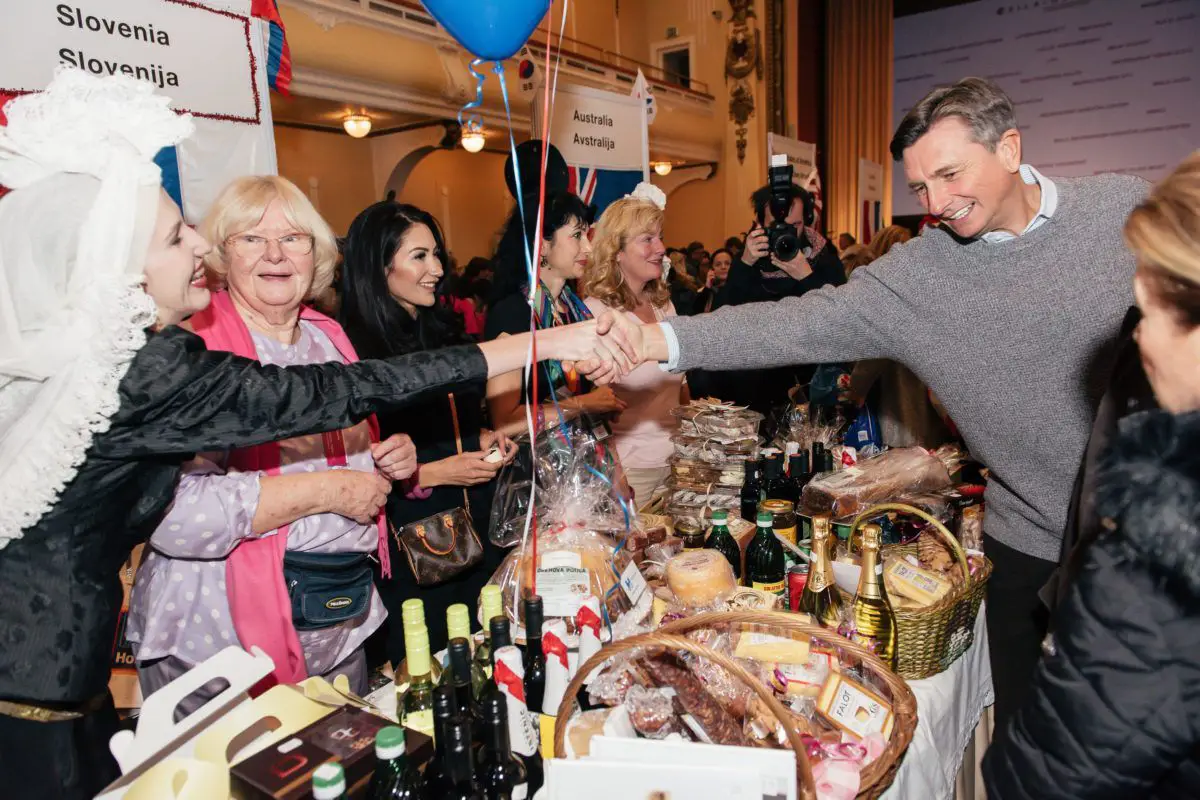
Presdent Pahor at last year's bazaar. Photo: SILA
Photo: Neža Loštrek
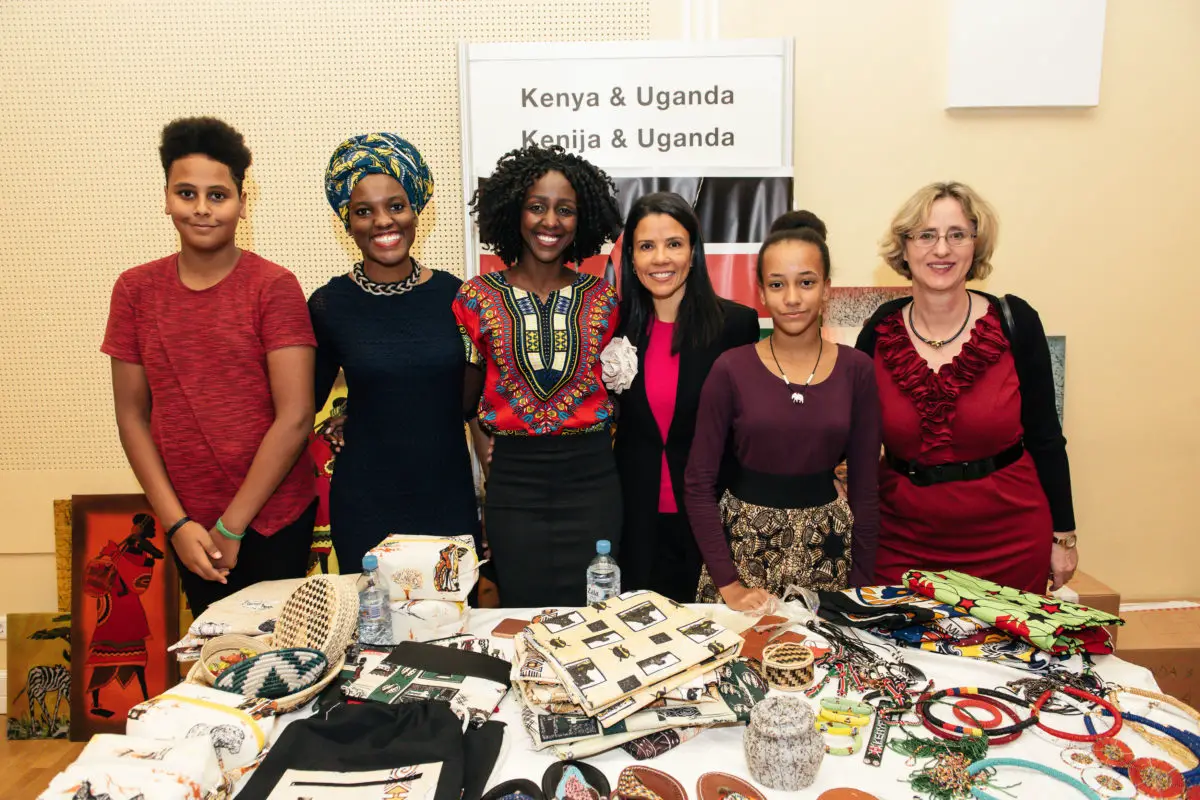
Photo: SILA
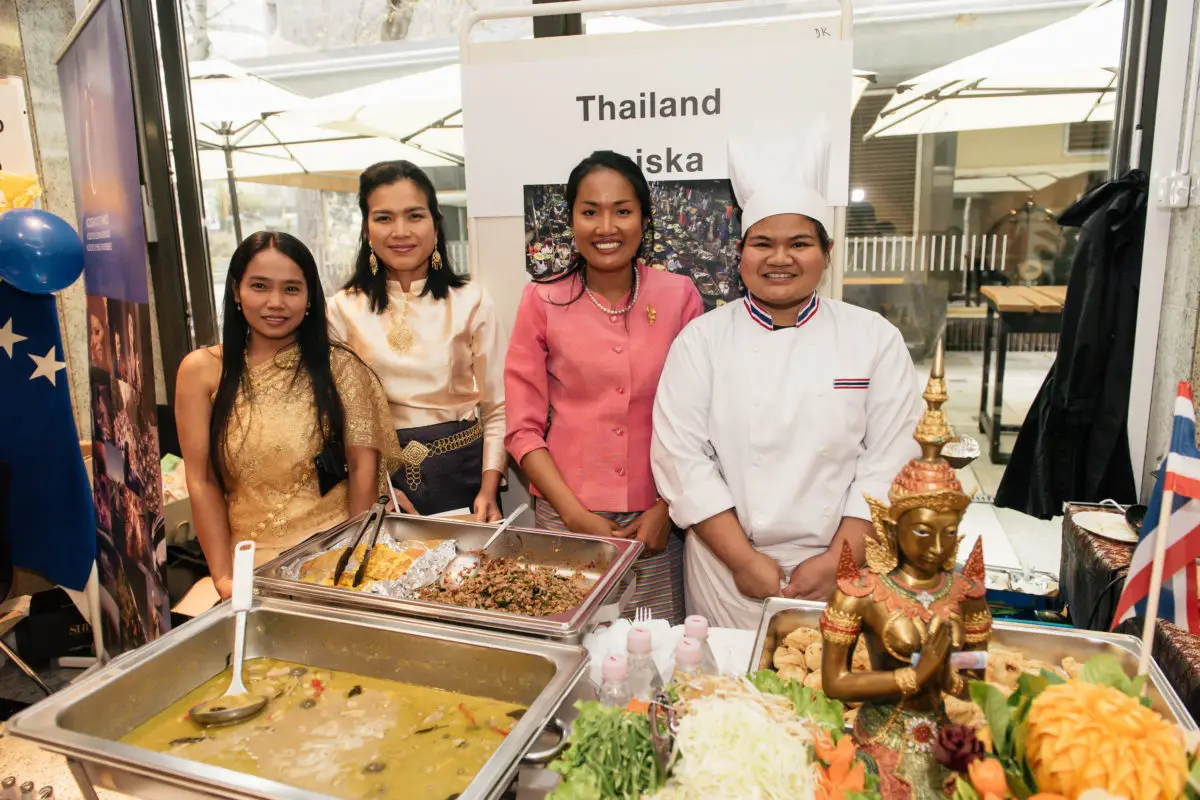
Photo: SILA
As reported in a previous story, SILA (the Slovenian International Ladies Association), was originally established as a social group for the wives of diplomats and foreign businessmen stationed in the country. However, as times have changed so has the group, which is now open not only to any foreign woman living in Slovenia, but also Slovenes, a meeting point to share experiences, adventures and pleasures. As such the group organises a full and varied programme of social, educational, cultural and sporting events for its members, but the focus of the year is its free to enter annual bazaar, which takes place this Sunday, December 1, from 10:00 to 16:00 in the ballroom of the Grand Hotel Union.
Related: Why you should consider joining SILA if you’re a woman in Ljubljana or nearby
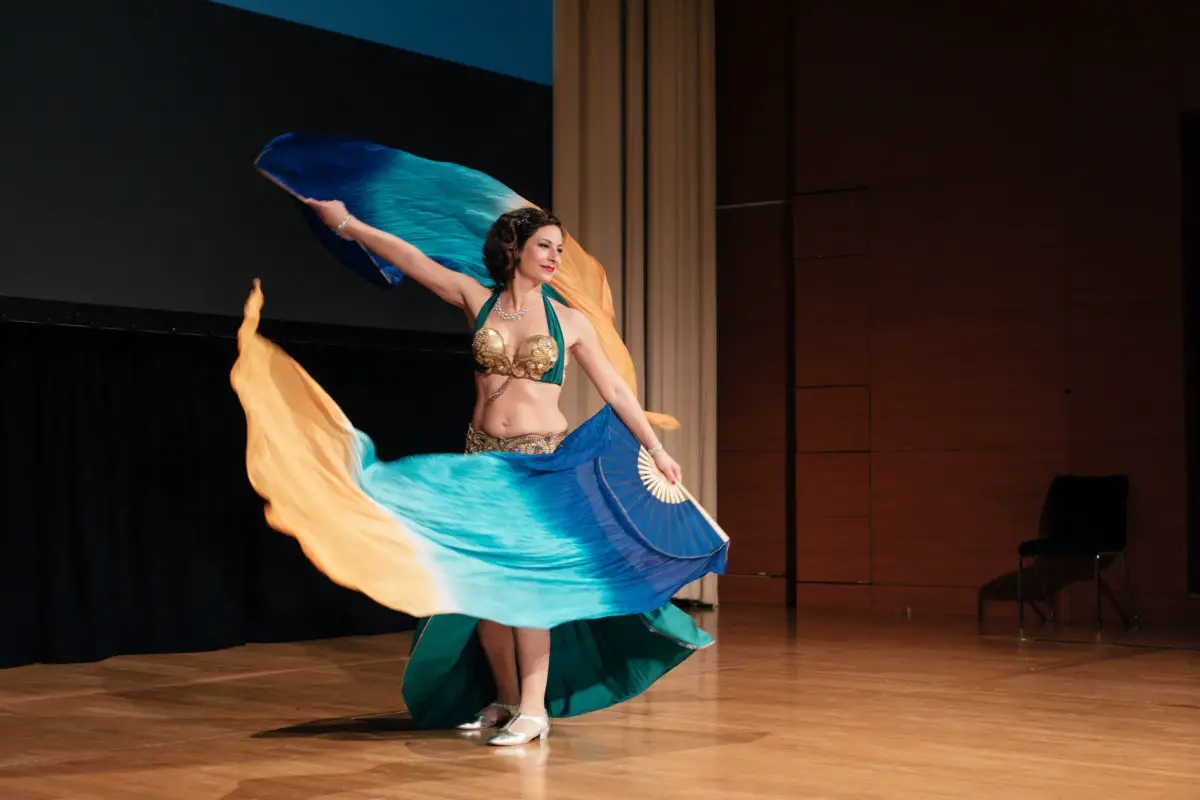
Photo: SILA
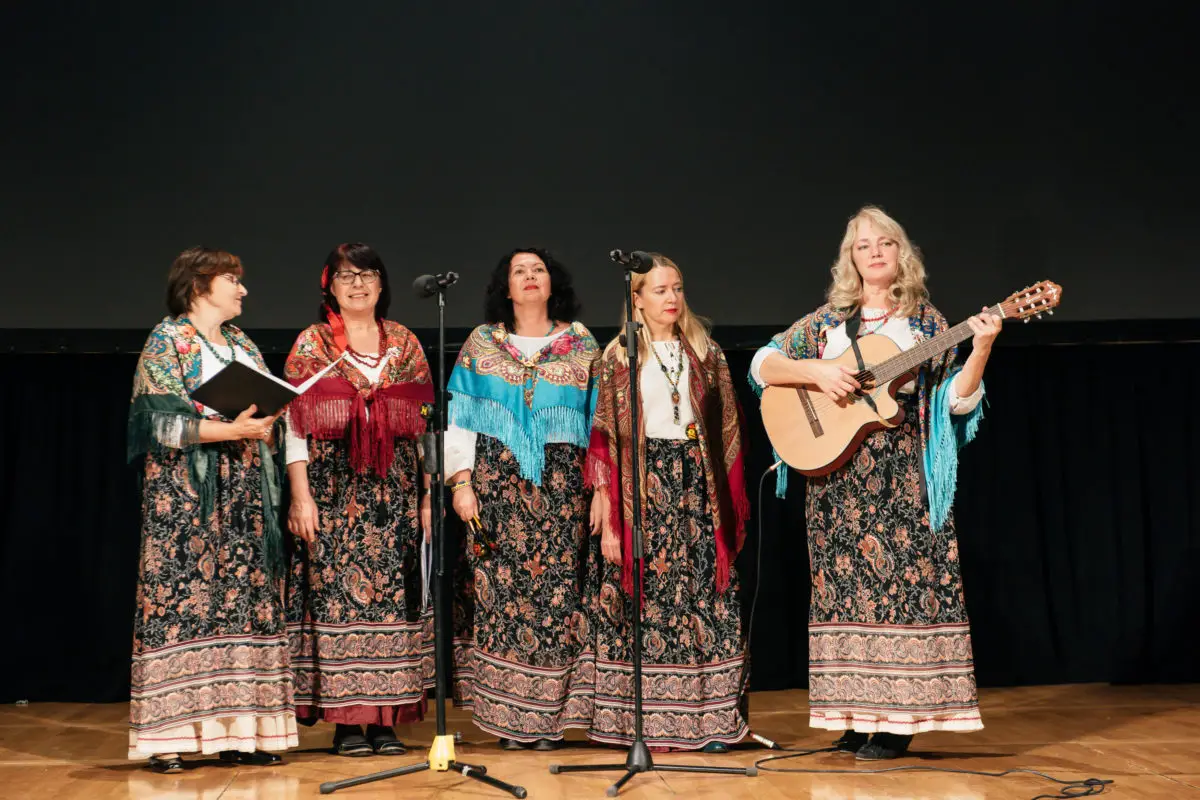
Photo: SILA
The bazaar is a lively, colourful and welcoming event, with around 40 countries from all the continents except Antartica, and for the first time stretching over two floors, with the food to be found on the second. Here you'll find stalls selling various items from each contry along food that’s often prepared by the related embassy chef, and thus of top quality and authenticity, all at very reasonable prices. The Celiac Association and Sladkorcki will also prepare food for visitors with celiac disease and diabetes, with the latter being one of the charitable foci of the day.
New this year is a Latin Corner, featuring Brazil, Colombia, Peru, Venezuela, Mexico, and Guatemala, an attraction offered under the initiative of the Brazilian Ambassador Renato Mosca. A room will be set aside for children’s activities, as organised by Minicity, while the cultural programme will include tango, Irish dance, Brazilian drummers, Thai dancers and more. There will also be an appearance by Zala Istenic, a Slovenian athlete who has Type 1 diabetes. She’s just 17 years old, was diagnosed with diabetes at the age of 14 and holds a number of national records. She will talk about her condition and give advice and inspiration for a healthy, active life.
India... Photo: Neža Loštrek
Indonesia... Photo: Neža Loštrek
...and Iran, and that's just the I's. Photo: Neža Loštrek
While it's the celebration of the foreign community in Slovenia and the varied sights, sounds and flavours that will draw the crowds, the real focus of the bazaar is charity, with money raised by the prize draw and other means. This year the focus is on projects for children, while at the same time raising awareness of Type 1 diabetes. The aim is to support the purchase of one medical device for newborns that helps to diagnose neonatal osteopenia, scientific research on diabetes, one-year payment for five students from disadvantaged families to go to boarding school, a yearly meeting for families with diabetes, and a theoretical and practical workshop for children diagnosed with celiac disease. The events partners in this regard are the Department of Neonatology, Division of Paediatrics, University Medical Centre Ljubljana, Department of Endocrinology, diabetes and metabolic disorders, Division of Paediatrics, University Medical Centre Ljubljana, Botrstvo, Sladkorčki, Slovensko društvo za Celiakijo.
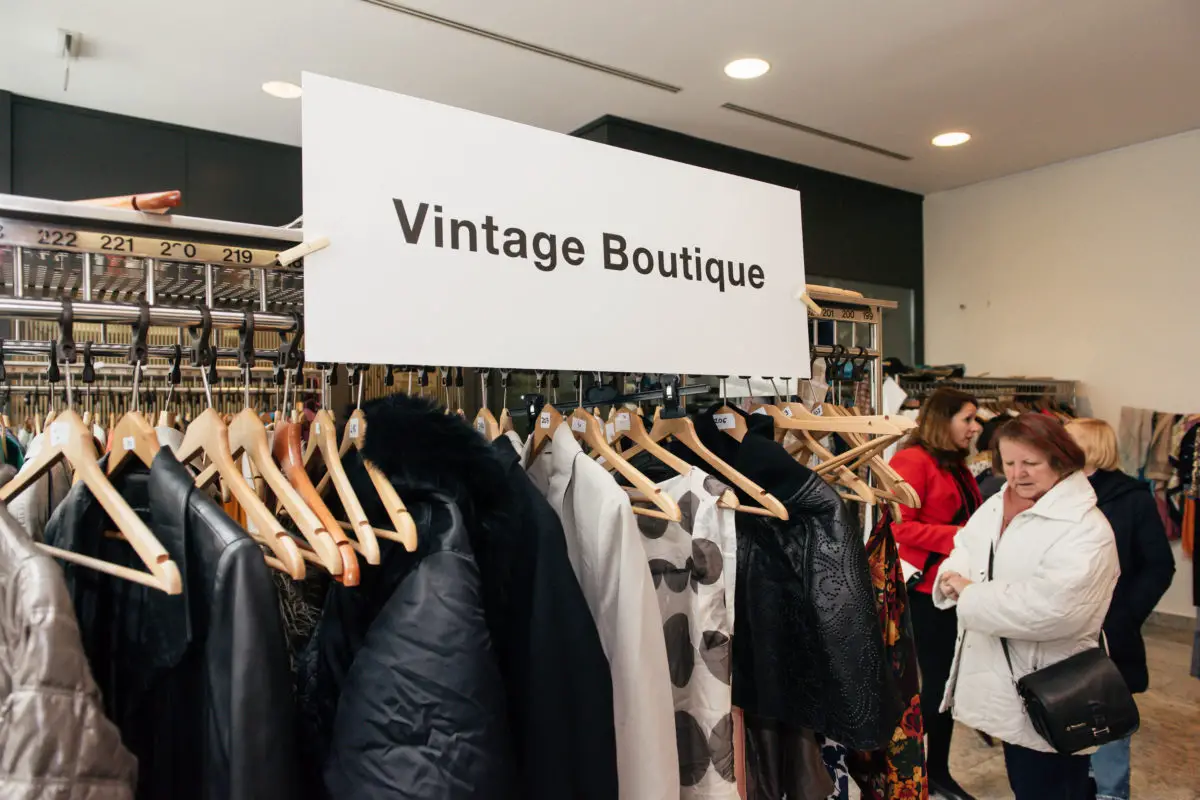
Photo: SILA
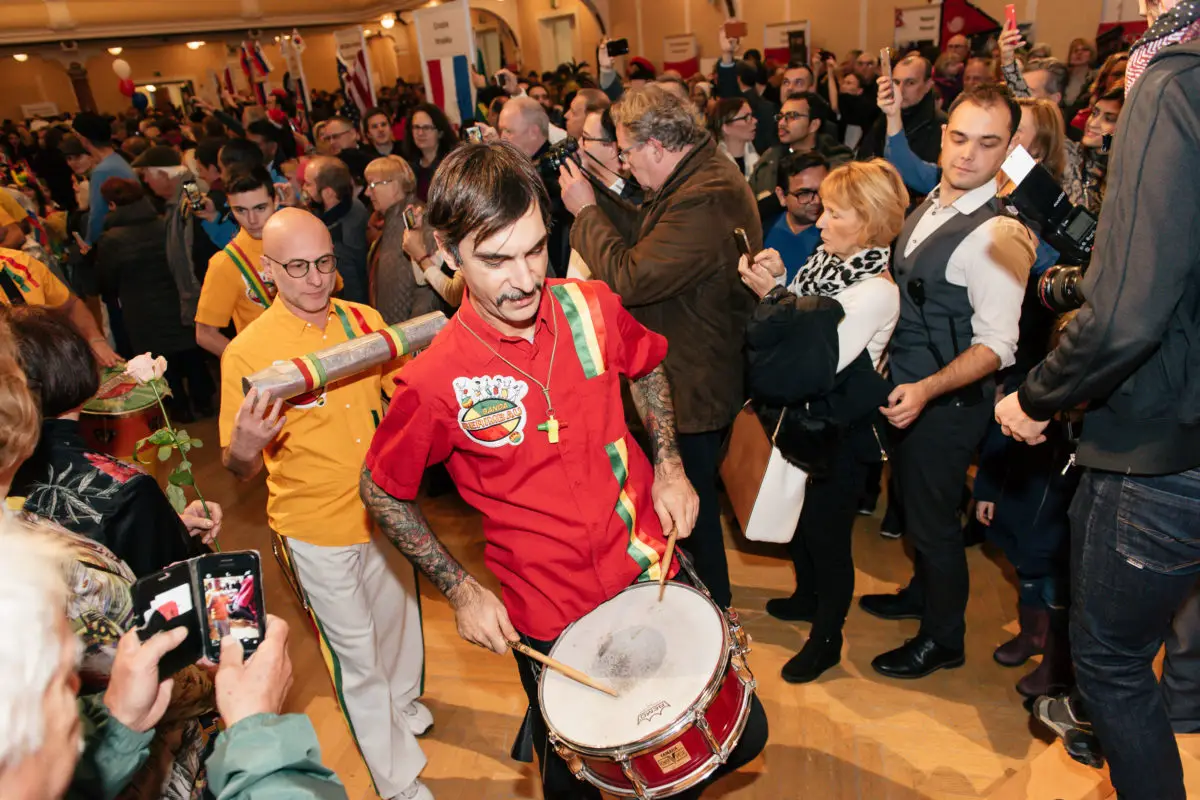
Photo: SILA
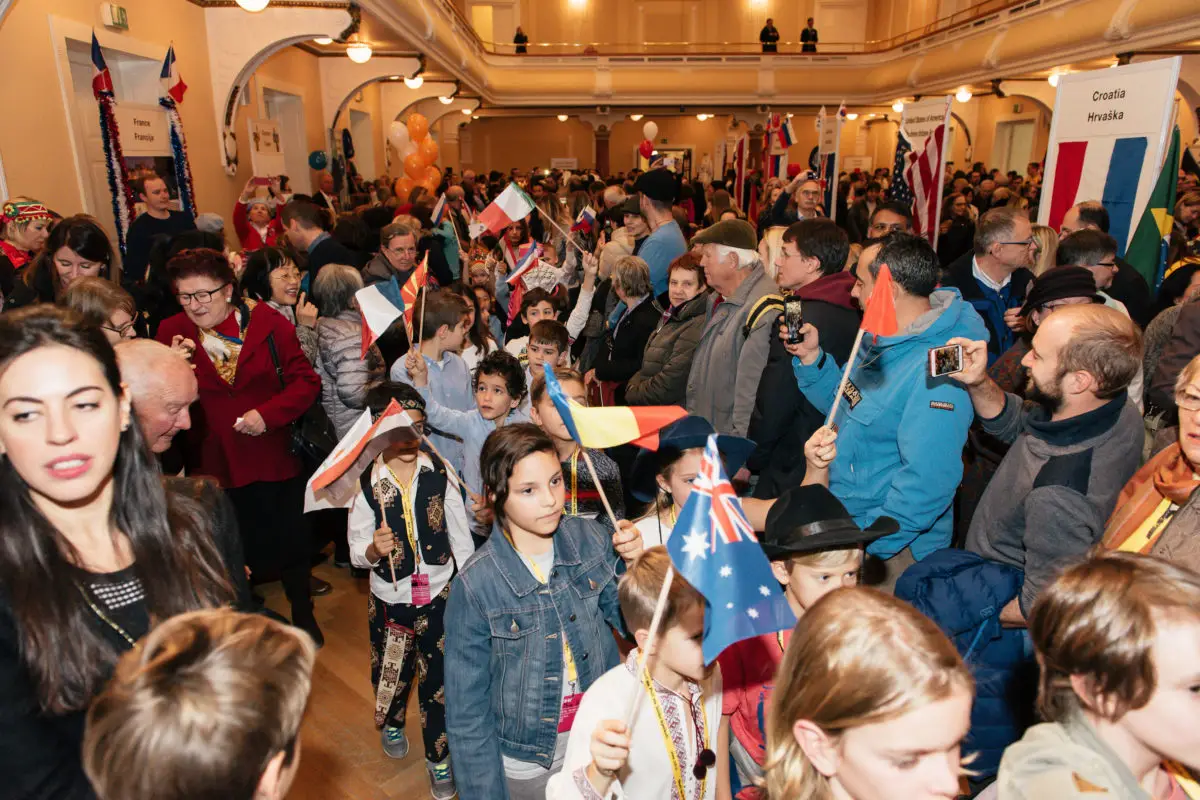
Photo: SILA
In short, as I hope these pictures illustrate, SILA’s annual bazaar is a fantastic way to start the festive month, with food, music, colour, an international spirit and the opportunity to give back to, and be part of, the wider community in Slovenia, while celebrating differences and enjoying each other’s cultures. A highly recommended event, from 10:00 to 16:00 Sunday December 1, in the ballroom of the Grand Hotel Union (the entrance on Nazorjeva Ulica, next to the Atelje restaurant and Hood Burger).


